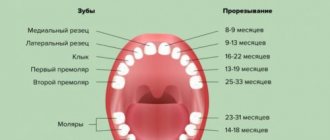Is it possible to get pregnant from a finger?
Here’s a question from a girl:
“Is it possible to get pregnant from sperm accidentally left on a door handle, surfaces, or a towel? How long does sperm live after ejaculation outdoors on surfaces? Can sperm be transferred from a doorknob onto toilet paper and lead to pregnancy? It’s just that my brother is 16 years old, he masturbates in the toilet, and the sperm remains on the plumbing and towels.”
And the second question from the same girl: “Is pregnancy possible by inserting sperm into the vagina with a finger? I just read that it’s unlikely, but I’d like to hear your opinion.”
What if it’s just grease on your finger ?
Dr. Makarova's answer:
1. You know, my opinion is this. - It’s not just unlikely, it’s not probable at all, because, let’s say, if sperm got on the stomach, thigh, external genitalia (labia minora or majora), you need approximately 14-16 centimeters To reach the cervix, some women have up to 18. Can you imagine, that is, sperm should flow 15 centimeters by gravity? And at the same time preserve all the properties, sperm motility, their viability, and so on. This, of course, is not just improbable, it is absolutely fantastic.
Even if the sperm gets directly to the cervical canal, that is, to the cervix, pregnancy does not occur, but you want the sperm from the stomach to break through the channel, enter the vagina, jump in big leaps to the cervix, and do its good deed there. Nothing like that, nothing like that will happen.
2. Moreover, this is all - take your finger, insert something into yourself somewhere; to deceive my husband - my husband came on his stomach, ran to wash, but I still took it all there - believe me, when it comes into contact with air, sperm loses its properties significantly. The same thing as pouring it out of a condom and pushing it into your vagina.
According to WHO research:
— in a woman’s vagina, “little creatures” live for about 2 hours. — “Tadpoles” that managed to get into the uterus and tubes remain alive for up to 6-7 days. — In a condom, sperm contained in the ejaculate live about the same as in air (on average 30-40 minutes).
Contact with latex, which can be treated with spermicides, contact with the external environment. As soon as sperm is released from the male genital tract, enzymes immediately begin to work and begin to liquefy the sperm. And if the sperm is in the vagina at this moment, then within literally seconds or minutes it begins to work - a cocktail between the prostatic secretion and the ejaculate that comes out of the testicles, it all mixes, the enzymes begin to work, and it all penetrates the cervix. At the same time, it penetrates into the cervix of the uterus, if it lies there, and not all the spermatozoa, some drop of the most active, strongest, most mobile, most viable and most normal spermatozoa gets there. It was they (several people) who got in there, ran to see who could get there faster, and the rest flowed out.
Upon contact with the external environment, upon contact with air, as soon as the sperm has dried - that’s it, it dies. And, accordingly, as soon as oxygen gets in, as soon as anything gets in - sun rays, microbes from your skin that contain substances that block bacteria, waste products of other bacteria, and so on - all this inactivates the sperm. Therefore, all these probabilities are not only unreal, they are fantastic. This can't happen.
Do folk remedies help prevent conception if unprotected sexual intercourse occurs?
Traditional methods of contraception (douching with solutions of acetic acid or lemon juice, washing the vagina with soap after intercourse) do not protect against pregnancy. Moreover, the use of such methods can be harmful to health.
Olga Yarkova, a gynecologist of the highest category of medical ]“ON Clinic Sumy”[/anchor], talks about the dangers of traditional methods of contraception:
“Normally, the vaginal environment is moderately acidic. Maintaining the acid-base balance of the reproductive tract is important for maintaining healthy microflora, which does not allow pathogenic microorganisms to multiply and protects against inflammatory diseases. The use of soap solutions sharply shifts the pH of the vagina to the alkaline side, which is very harmful for healthy microflora. In addition, during douching with concentrated acidic solutions, you can get a chemical burn to the vaginal walls.”
Is there pregnancy?
Is it difficult to get pregnant? I heard a statement from some serious Brazilian scientist. In South America and India, technologies related to reproductive technology are very developed. And so he studied these questions. And there was such a phrase that there are so many “against” for fertilization to take place (different pH of the environment, movement against the current, negative pressure in the vagina, discrepancy in days, some other points), the sperm must meet in the tube or in the abdominal cavity with the egg, and it must travel back through the tube and be implanted not into the abdominal cavity, not into the tube, but precisely into the uterine cavity. So he said: “There are so many obstacles on the path of the sperm and egg and on the path of the embryo to the uterus that one can only wonder how the process of fertilization occurs.”
This is why I say that fertilization is the will of God. Therefore, if God’s will is there, then you will get pregnant even with a finger. Of course it is. But from a physiological point of view, this is fantastic.
I would like to add one more thing here. I have lived my life and seen a lot of couples, I myself have two children, a woman, if she wants to get pregnant from her man, she gets pregnant. She becomes pregnant from his trousers touching her skirt, from his panties, from his gaze. Of course, if you have the desire, you will find this opportunity. You will lull your husband’s vigilance, you will receive that desired sip of sperm into your vagina.
Is there 100% protection from pregnancy?
An absolute guarantee that pregnancy will not occur is provided by only two methods of contraception: complete sexual abstinence and surgical sterilization of at least one of the partners. Agree that I would not like to resort to such categorical measures.
Modern methods of contraception (barrier, hormonal, intrauterine) have a high level of protection against pregnancy - more than 99%. It is important to remember that 99% of birth control is provided only if each method is used correctly.
The effect of lubricant on conceiving a child
Intimate gels can affect the conception of the fetus. Much depends on the composition of the lubricant. At the same time, it is necessary to pay attention to other factors.
Features of the composition
There are three most common types of lubricants commercially available:
- Aquatic. Contains water and gel.
- Silicone. Contains silicone. They prolong sexual intercourse due to the fact that they do not dry out for a long time. A number of products contain fragrances that provoke allergies.
- Oily. Contains oils and esters as a base. Aggressive lubricants that destroy sperm. They are less common than silicone and water gels.
What can help conception?
When planning a pregnancy, you should pay attention to the nutrition of both partners.
It is also recommended to give preference to water-based lubricants without fragrances and glycerin. Due to it, the acidic environment inside the organ, which is potentially harmful to the health of sperm, is neutralized.
Before sexual intercourse and using a lubricant, a woman is recommended to syringe the vagina with a soda solution.
It is also necessary to devote more time to foreplay. Their optimal duration is 15-20 minutes. In this way, maximum stimulation of partners is achieved, which contributes to the additional release of their own lubricant.
What harms conception?
When planning pregnancy, the following factors are harmful:
- use of aggressive spermicidal lubricants;
- repeated sexual intercourse during the day;
- stress;
- physical fatigue;
- taking antibiotics, contraceptives and alcohol;
- non-classical positions during intercourse (standing sex reduces the likelihood of conception).
Is it possible to pick up sperm in the pool and get pregnant?
It is impossible to get pregnant while swimming in a pool, despite the prevalence of this myth on the Internet.
Urologist of the first category of medical ]“ON Clinic Poltava”[/anchor] Igor Eroshenko commented on the possibility of “picking up” sperm in the pool:
“The lifespan of a sperm outside a woman’s genital tract can reach several hours, provided the temperature and humidity are close to those in the vagina, uterus and fallopian tubes. In swimming pool water conditions, sperm die within a few minutes from the effects of osmosis and disinfectants dissolved in the water.”
Is it possible to get pregnant while breastfeeding?
It is possible to become pregnant during lactation (breastfeeding). The lactational amenorrhea method is a method of contraception that assumes that the likelihood of becoming pregnant is extremely low before the first menstrual period after a previous pregnancy.
Gynecologist-endocrinologist of the medical ]“ON Clinic Kharkov”[/anchor] Alena Shapovalova notes:
“For breastfeeding women, the recovery time of the menstrual cycle varies individually - on average, from 2 to 6 months. However, the lactational amenorrhea method is extremely unreliable, since the first ovulation (necessary for conception) occurs before the resumption of menstruation, when the woman does not yet know that her cycle has returned. In some cases, it is even possible to ovulate several times before menstruation appears.”
Petting and male lubrication
Is it possible to get pregnant from a man’s lubricant (discharge) during petting if a certain amount of biological material gets on the girl’s genitals?
It all depends on where exactly the sperm was located. If it hits the pubis, you don’t have to worry about conception. It is enough to simply wash the semen from the body. But getting a man's ejaculate or lubricant directly into the vagina or labia can lead to an "interesting situation."
Can pre-ejaculate cause conception?
To prevent unwanted conception, many couples use a contraceptive method such as coitus interruptus. Most gynecologists believe that this method of contraception does not guarantee complete protection. Especially when it comes to young representatives of the stronger sex, who have not yet studied their bodies well and may simply miss the beginning of ejaculation.
The essence of the method of interrupted coitus (PCA) is that the man must have time to remove the sexual organ from the vagina. If the partner controls this process well, the chances of getting pregnant are quite low. If sex occurs repeatedly, then a certain amount of sperm may enter the lubricant from the urethra. If a man does not take the necessary hygiene measures and reinserts the penis into the vagina, the risks of conceiving a baby greatly increase.
It is also important to know that the female vagina has an acidic environment, and pre-ejaculate can neutralize it. It is the pre-seminal fluid that first enters the girl’s body during sexual intercourse. If partners use a method of contraception such as PPA, and the man did not shower after the first contact and inserted the penis into the vagina, the likelihood of pregnancy is high.
Types of male discharge
Discharge from the male genital organs during sex can be divided into those that precede ejaculation. These are called pre-ejaculate and seminal fluid or semen. There may also be pathological discharge. And they can talk about a systemic disease or be of an infectious nature.
Sex can be safe and fun
Conception and pregnancy are possible when a woman's egg is fertilized by male sperm. And this means that pregnancy can occur as a result of a man’s sperm entering a woman’s internal genital organs. Lubricant or pre-seminal fluid does not contain sperm, therefore, before ejaculation occurs, you can have sex without using contraceptive methods.
What is sperm?
Sperm is released from the male genital organs during orgasm and resembles the consistency of liquid jelly of a grayish-white color. In healthy men, it contains more than 40 million sperm. On average, male sexual intercourse lasts from 3 to 15 minutes. The release of sperm takes about 10 - 15 seconds and it completes sexual intercourse.
The sperm enters the egg
Is it possible to get pregnant by having sex during your period?
You can get pregnant on any day of your period. Moreover, such cases are far from uncommon! Ovulation can occur in the first half of the cycle, or sperm that move through the fallopian tubes and remain viable for several days can “wait” for the egg.
This is what obstetrician-gynecologist, gynecological oncologist at the medical ]“ON Clinic Odessa”[/anchor] Tatyana Yushchenko says about sex during menstruation:
“It is not recommended to have sex during menstruation. During this period, the risk of infection and development of inflammatory diseases in women increases. In addition, sex during menstruation can lead to endometriosis.”











